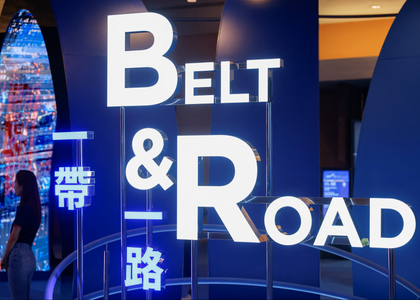Chinese firms in African countries face problems amid rising unrest: Report
By IANS | Updated: October 22, 2025 17:10 IST2025-10-22T17:07:12+5:302025-10-22T17:10:14+5:30
New Delhi, Oct 22 Recent unrest in some African countries has highlighted the security, political and community-relations risks ...

Chinese firms in African countries face problems amid rising unrest: Report
New Delhi, Oct 22 Recent unrest in some African countries has highlighted the security, political and community-relations risks facing some Chinese businesses operating on the continent. China’s overseas engagement — often centred on infrastructure finance and trade under the Belt and Road Initiative (BRI) — has expanded market access and built roads, railways and energy projects, according to a new report.
At the same time, episodes of looting, arson and targeted crime in several African countries have prompted reviews of security, compliance and local partnerships, according to an article in Kenya’s Capital News.
Analysts note that “economic diplomacy” can amplify tensions where communities feel benefits have not been evenly shared, or where economic shocks and political disputes are already present.
In Madagascar, protests over power cuts and service delivery in Antananarivo escalated into rioting and property damage, with Chinese-owned premises reported among those affected. Authorities imposed a curfew and announced cabinet changes as demonstrations continued, the article states.
In Angola, subsidy reforms and fuel price increases coincided with the deadliest unrest in years; alongside casualties and arrests, some retail outlets — including Chinese-owned shops — were looted. Similarly, Mozambique’s post-election disputes saw protests, mass arrests and incidents of arson and looting in urban areas, with a range of businesses impacted, according to the article.
Beyond street unrest, governance and environmental concerns have drawn scrutiny. In the Democratic Republic of the Congo, officials and watchdogs have reported illegal or irregular mining operations involving a number of foreign operators, including some with Chinese links. Enforcement actions — from arrests to licence reviews — reflect broader efforts to formalise the sector, the article observes.
It also highlights that several governments have moved to deter unlawful activity around foreign-linked enterprises. Ghana has tightened visa procedures for Chinese nationals amid a wider clampdown on illegal small-scale gold mining, citing pollution and community impacts.
In Nigeria, courts have handed down convictions in cybercrime cases involving foreign nationals, and local regulators have temporarily sealed some firms — including Chinese-owned companies — following clashes with enforcement officers during inspections. These actions sit alongside routine cooperation between Chinese missions and host authorities on compliance and business continuity.
Security incidents have also underscored the risks of operating in high-threat environments. A Chinese-owned fishing vessel was hijacked off Somalia before the crew was eventually reported safe, and earlier, nine Chinese workers were killed in an attack on a gold mine in the Central African Republic. Such events have led Chinese officials to call for accountability while urging companies to strengthen risk assessments, avoid political entanglements — particularly around elections — and improve staff safety measures, the article added.
Disclaimer: This post has been auto-published from an agency feed without any modifications to the text and has not been reviewed by an editor
Open in app